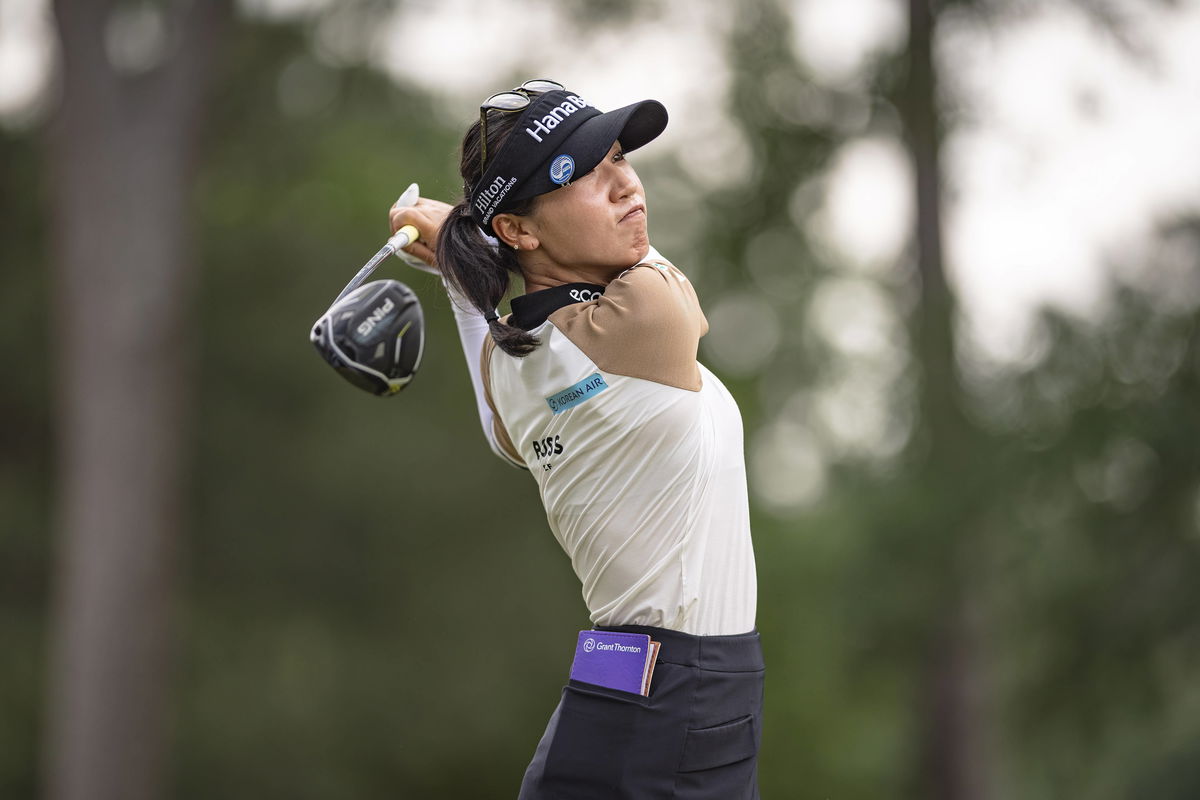
Imago
April 24, 2025, The Woodlands, Texas, USA: LYDIA KO NZL tees off on the 2nd hole during the first round of the 2025 Chevron Championship at The Club at Carlton Woods in The Woodlands, Texas, on Thursday, April 24, 2025. The Woodlands USA – ZUMAp213 20250424_znp_p213_092 Copyright: xLynnxPenningtonx Credit: Lynn Pennington/ IMAGO / ZUMA Press Wire

Imago
April 24, 2025, The Woodlands, Texas, USA: LYDIA KO NZL tees off on the 2nd hole during the first round of the 2025 Chevron Championship at The Club at Carlton Woods in The Woodlands, Texas, on Thursday, April 24, 2025. The Woodlands USA – ZUMAp213 20250424_znp_p213_092 Copyright: xLynnxPenningtonx Credit: Lynn Pennington/ IMAGO / ZUMA Press Wire
With 23 career wins, a place in the LPGA Hall of Fame, three Olympic medals, and three major championships to her name, Lydia Ko’s resume is among the most decorated in women’s golf history. But those achievements haven’t come without bouts of struggle and moments of internal doubts, but Lydia Ko has one quality that’s helped her navigate them all.
Watch What’s Trending Now!
On a recent episode of The Mixed Bag, a women’s golf podcast by Fried Egg Golf, Dr. Julie Amato joined hosts Meg Adkins and Matthew Galloway and broke down the real challenges elite athletes face, especially in learning how to show up mentally when everything feels like it’s falling apart. “I think one of the main things that I try to really help players with is you can hack the weed down and give them like, okay, like write down your three process goals, and if you notice some anxiety, you could do some breathing. I mean, they know all these things. Um, that’s hacking the weed down. We’re trying to pull it out by the root,” Amato began.
And this process of handling high-pressure moments is something displayed very well by Lydia Ko. “You know, if you watch even interviews with like Lydia Ko after the British Open, like, it’s not like she’s saying she’s not nervous. She is nervous. She’s just learned how to kind of notice that feeling and not panic. And I think that’s like the main thing,” Amato stated, hinting that this quality is something every golfer, at any level, should learn. Dr. Amato, who is the official sports psychologist on the LPGA Tour, describes Ko’s mindset as emotionally aware but not emotionally reactive — a distinction that even top players struggle to understand, let alone apply under pressure.
ADVERTISEMENT
And that’s where Ko stands apart. In 2023, even after a difficult season, where she failed to notch a win in 20 starts and recorded her lowest LPGA earnings since turning pro in 2013, Lydia Ko found herself at a crossroads. “In 2023, I was struggling a lot, and I wasn’t even shooting under par for a couple of months,” Ko said in an interview with The Straits Times earlier this year. But instead of spiralling, Ko recognized her doubts — “When things don’t go your way, you start wondering about what the future is going to look like. But to be able to overcome those doubts internally was probably one of my proudest moments.”
The mental side of golf is every bit as important as the physical.
On The Mixed Bag, @megadkins_TFE and @matthewgalloway talk with LPGA Sports Psychologist @DrJulieAmato to learn more about her role with the Tour and some of the game’s top players. pic.twitter.com/jtaUlDB6eh
— Fried Egg Golf (@fried_egg_golf) September 2, 2025
And her 2024 season was proof of that mental strength. She went on to claim three titles that season, including the AIG Women’s Open, which ended an 8-year major drought for Ko since her last win at the 2016 Chevron Championship. She even earned a gold medal at the Paris Olympics last year, completing her resurgence. But none of this success would have come without Ko having to introspect and understand her own character, as Dr. Amato highlights — “Very much easier than none, but the best in the world start to really work to be introspective and understand themselves and understand who they are when they’re at their best and how they wanna be, and it becomes more of a character thing.”
ADVERTISEMENT
But Lydia Ko’s growth hasn’t happened in isolation. While self-reflection has been key, she has acknowledged the importance of the people around her.
Top Stories
Patrick Reed Willing to End Rory McIlroy Feud Using Bizarre Measure Years After ‘Tee-Gate’

Paige Spiranac Undergoes Major Transformation as She Makes Jaws Drop With New ‘Life Update’

Rickie Fowler Cautions 18-Year-Old Pro as He Scripts PGA Tour History

‘Rest in Peace’: PGA Tour in Mourning as NFL Legend-Turned-Golf Pro Dies at 90

After Heated Run-Ins With Officials, Shane Lowry Claims He Helped Change a Golf Rule

ADVERTISEMENT
Lydia Ko highlights the importance of Support Systems
The deeper level of self-awareness that Lydia Ko has achieved hasn’t come alone — it’s been supported by a growing culture of mental health advocacy in professional golf. Lydia Ko credits her support team and the LPGA’s mental health resources as key parts of her journey back to the top. “If I lose my belief, having my support staff and my coaches there to guide me through that process is really important,” Ko said in the interview with Straits Times.
She even emphasized how the sport has evolved in its approach to mental wellness, specifically the LPGA and the role of Dr. Julie Amato’s work in her growth. “Before, it was kind of like a taboo to talk about your mental (health), it was a little bit more uncomfortable to talk about what goes through your mind. But now, we have those kinds of resources. Somebody like (psychologist) Dr (Julie) Amato that we’re able to talk to is really important, and you might not necessarily need it every day or every week, but it’s something that you can always go back to,” she added.
This evolving mindset has helped Lydia Ko develop a long-term resilience that now shapes how she navigates both success and setbacks. And something that you would not hear from a lot of elite athletes, Ko feels that experiencing more lows leads to a better growing experience, as it makes you stronger and ready for the next challenge to come. “As much as the highs help you grow and see things, I think the lows sometimes make you grow even more. But when you overcome that, you look back and realise, okay, that felt really hard, but I’ve overcome that. So if I am in that situation again, I’ll be able to come out of it much quicker. And that was a good learning experience,” she added.
ADVERTISEMENT
ADVERTISEMENT
ADVERTISEMENT
ADVERTISEMENT
